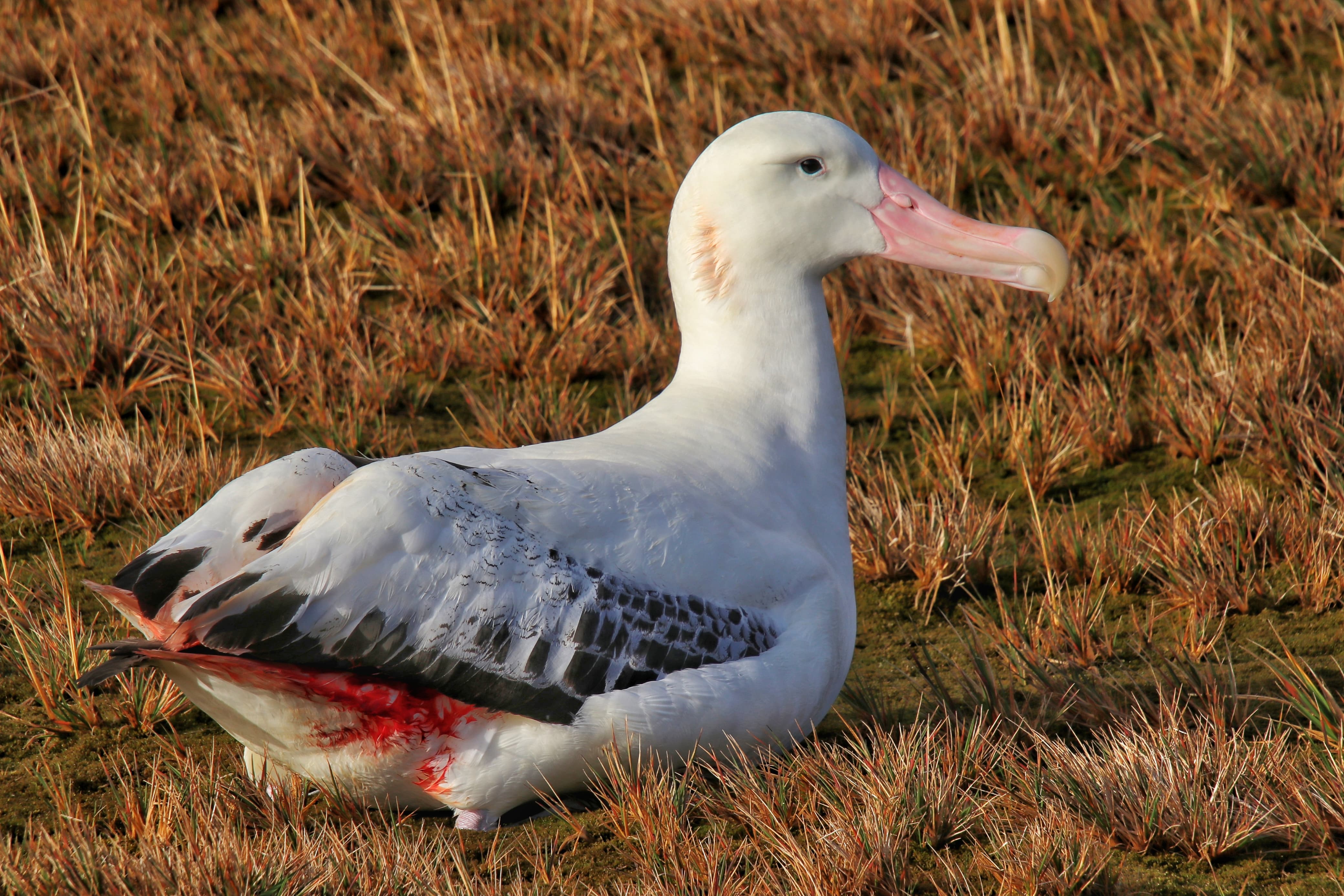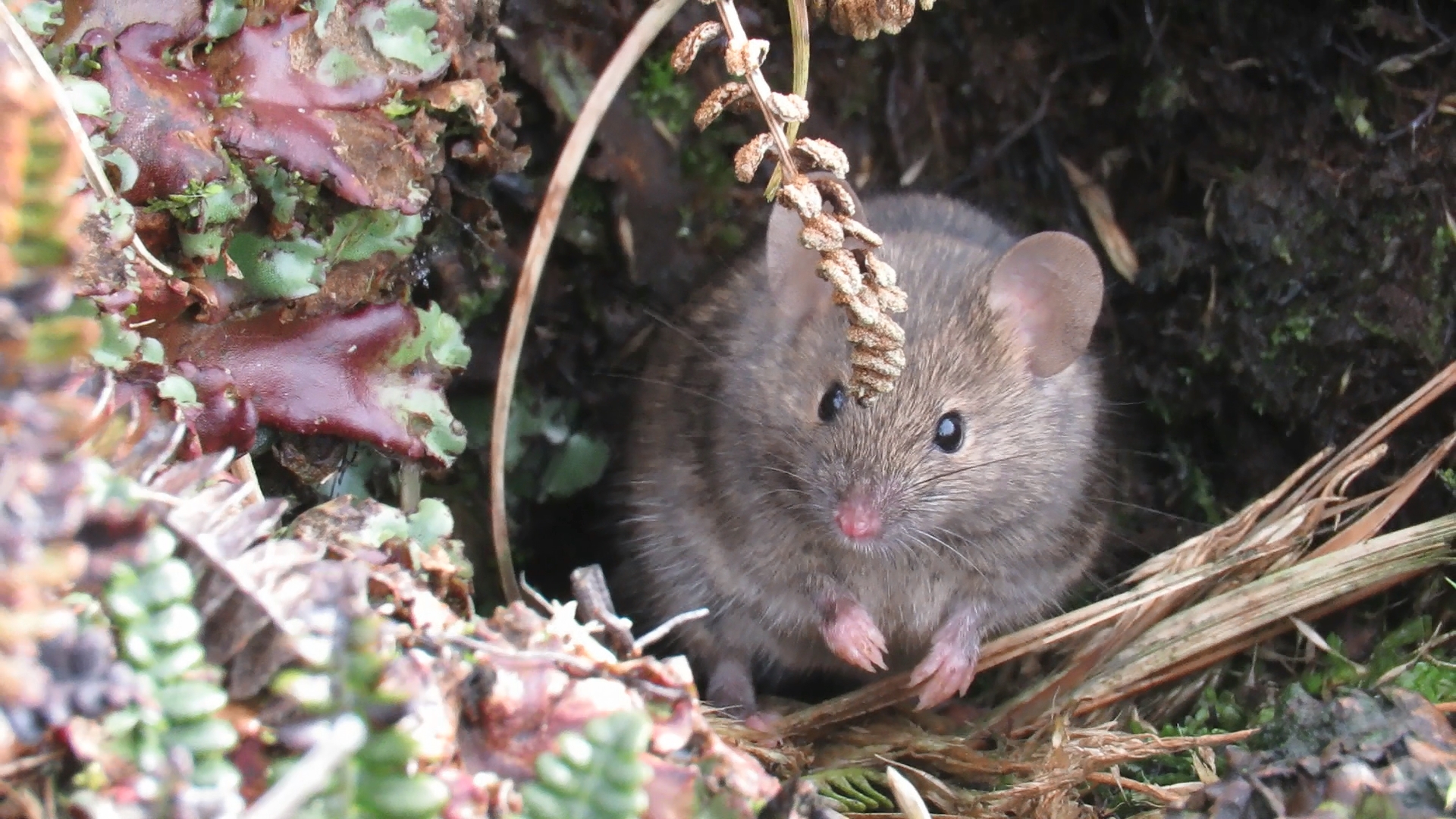 The problem: this Wandering Albatross has been attacked by House Mice on Marion Island, photograph by Chris Jones
The problem: this Wandering Albatross has been attacked by House Mice on Marion Island, photograph by Chris Jones
Keith Springer (Operations Manager, Mouse-Free Marion Project, BirdLife South Africa) and colleagues have published their presentation on the findings of an international workshop held in New Zealand to the 31st Vertebrate Pest Conference in Monterey, California, USA in March 2024.
The paper’s abstract follows:
“Invasive house mice threaten native biodiversity on many of the world’s islands. Best practice for eradicating house mouse populations from islands currently relies on bait containing the anticoagulant rodenticide brodifacoum. These baits are typically either broadcast (by hand or by helicopter in natural areas) or placed in bait stations (in human infrastructure or in areas where open broadcast is not permitted). There have been many successful mouse eradications using these methods, including 29 of 36 attempts of islands being successful (81%) in New Zealand. Following recent failed mouse eradications on Gough Island (South Atlantic, 2021) and Midway Atoll (North Pacific, 2023), a workshop was convened with 24 people attending (16 in-person, 8 on-line) from 7 countries (Australia, Canada, France, NZ, South Africa, UK, US), to discuss some hypotheses for what may have contributed to these unsuccessful outcomes. The workshop was held in Palmerston North, New Zealand, between November 27 and 29, 2023. Discussions over the three days revolved around three hypotheses. We present the key factors hypothesized for why eradications failed on these two islands. We also outline research and operational needs that were identified in the workshop that can contribute to improved outcomes for future eradications of house mice from targeted islands.”

The target: a Marion Island House Mouse, photograph by Stefan Schoombie
With thanks to Keith Springer.
The paper has been published online at the open-access repository eScholarship.org, where it can be read and/or downloaded. The conference proceedings editor advises that “after all papers submitted for the 31st Proceedings have been published on eScholarship.org, we will proceed to publish Volume 31 of the Proceedings in hard copy format. Because of the relatively small number of papers submitted for the 30th Proceedings (2022) due to the COVID pandemic, the hard copy version will include papers from both the 30th and 31st (2024) Conferences. We expect it to be available for purchase sometime in the first half of 2025.”
Reference:
Springer, K., Wolfaardt, A., Broome, K., Callender, A., Thomas, S., Griffiths, R., Will, D., Shiels, A. & Le Bouard, F. 2024. Factors contributing to recent house mouse eradication ailures on islands: an initial assessment following a workshop in New Zealand. Proceedings of the 31st Vertebrate Pest Conference, March 11-14, 2024, Monterey, California. 7 pp.
John Cooper, Emeritus Information Officer, Agreement on the Conservation of Albatrosses and Petrels, 08 October 2024

 English
English  Français
Français  Español
Español